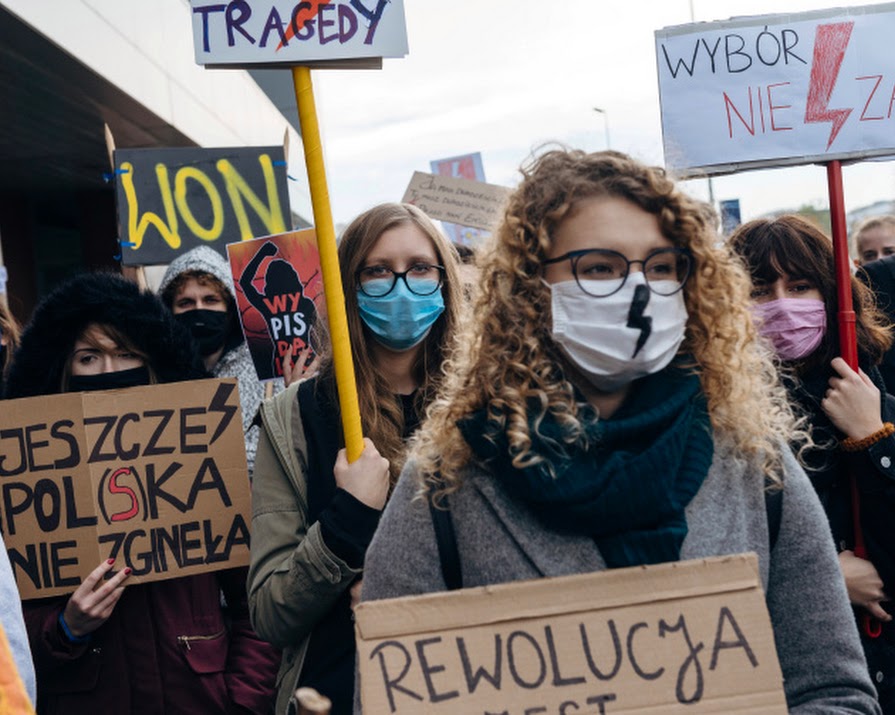
Everything you need to know about Poland’s near-total ban on abortion
By Amanda Cassidy
31st Jan 2021
31st Jan 2021
Protests have been ongoing for three days as the country imposes a ban on terminations under almost every possible circumstance.
Hundreds of thousands of people in Poland – both men and women – have taken to the streets in the biggest demonstrations seen in over 30 years.
It’s after a near-total ban on abortions that came into effect last Wednesday. Under the new law, terminating a pregnancy is prohibited for fetal defects -even severe and fatal ones, despite them making up the majority of abortion cases in the country.
The ruling means that abortion of pregnancies after rape or incest, and pregnancies that are likely to cause a woman’s death is still permitted, however, recent figures show that these made up just 26 cases last year.
After the protests reached their third consecutive day, police in riot gear lined the streets of Warsaw, Gandask, and other Polish cities while several protesters were arrested.

Those demonstrating have defied Covid-restrictions and sub-zero temperatures to rally against the right-wing lead government
Right to decide
Some of the placards being waved read “My body, my choice”, “The revolution has a uterus” and “You have blood on your hands.”
Last October, the nation’s Constitutional Court banned abortions in nearly all cases. The ruling came into effect on Wednesday. The Polish government has consistently supported the court’s verdict saying that the ruling would stop so-called eugenic abortions, referring to the termination of fetuses diagnoses with Down’s Syndrome.
The court justified its ruling on the grounds that “an unborn child is a human being” and therefore it deserves protection under Poland’s constitution which ensures the right to life.
“I want us to have our basic rights, the right to decide about our bodies, the right to decide what we want to do and if we want to bear children and in what circumstances to have children,” one protester, Gabriela Stepniak, told Reuters news agency.
Many women also point out that carrying an unviable pregnancy puts women’s lives at risk.
Poland, a staunchly catholic country, already has some of the EU’s strictest abortion laws. About 2000 abortions are performed each year, a majority on the grounds of fetal abnormalities.
Women’s groups estimate around 200,000 Polish women seek abortions each year either illegally or abroad.























